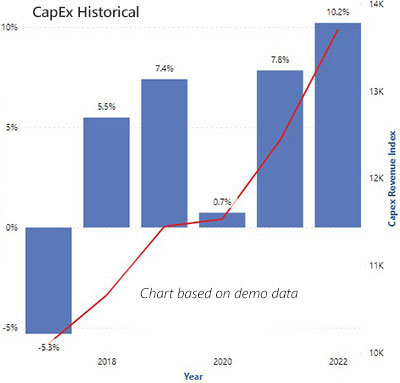ARC’s research shows that the Multi-enterprise Supply Chain Networks (MSCN) market, which is valued at over $2 and half billion, is projected to grow at double-digit rates for the next five years. The growth drivers for the market has historically been their ability to contribute to supply chain resilience and agility. Multi-enterprise Supply Chain Network solutions include network-based fulfillment applications and advanced supply chain risk analytics. Risk solutions provide near real-time visibility to unexpected supply chain events that either represent a large upside opportunity or risk. The fulfillment solutions provide collaboration and visibility around planned flows of supply chain raw materials, WIP, and finished goods.
MSCN suppliers report that pressures surrounding compliance to ESG regulations is increasing their pipeline. In particular, the Uyghur Forced Labor Protection Act, which is enforced by the US Customs and Border Protection Agency (UFLPA) is creating new opportunities. Between June of 2023 and January of 2024, more than half a billion dollars of goods presumed to have been made by Uyghur forced labor had been detained and prohibited from entering the US. UFLPA operates on what is known as a ‘rebuttable presumption’. This is truly unique. Anything coming out of Xinjiang is presumed to have used forced labor unless one can prove otherwise. There is also a lack of a de minimis exception; this means that even an insignificant input of product produced in whole or in part with forced labor could result in enforcement action.
"Definitions of agility, resilience, visibility, and end-to-end collaboration are all very much tied together. Agility is the ability to react quickly when something bad (or good) happens. Resilience is advanced preparation for supply chain shocks. And both agility and resilience depend upon the kind of visibility and collaboration MSCN solutions can provide," according to Steve Banker Vice President of Research and key author of ARC's Multi-enterprise Supply Chain Networks Market Research.
Multi-enterprise Supply Chain Networks Market Trends
Today, many major manufacturers do little manufacturing themselves. Outsourcing manufacturing to lower cost regions, particularly Asia, is common. This creates complex supply chains where demand is disconnected from supply. While supply chain vendors across the board continue to improve applications, the decision-grade data needed to run end-to-end supply chains is elusive because many supply chain and enterprise applications are focused on the internal company rather than the end-to-end supply chain, because of the need to access data from a plethora of internal and external systems and large companies may have hundreds or thousands of ecosystem partners. The vast majority of activity and data now resides outside the enterprise.
The MSCN market has seen double-digit growth in recent years. The key driver is the growing numbers of companies undergoing digital transformation. The pandemic highlighted the importance of digitally transforming supply chains to achieve agility. A supply chain digital transformation could include the implementation of many different applications. But arguably, the key to a holistic transformation is data from across the end-to-end supply chain that a company operates in. That puts the supply chain collaboration network solution at the heart of supply chain transformations. As supply chain industry analysts began to focus on the need for visibility and collaboration across an extended supply chain, the importance of network solutions became clear.
Leading Suppliers to the Multi-enterprise Supply Chain Networks Market Identified
In addition to providing specific market data and industry trends, this ARC market research also identifies and positions the leading suppliers to this market and provides and summarizes their relevant offerings. An alphabetical list of key suppliers covered in this analysis includes: Descartes, E2open, Infor Nexus, project44, SAP.
About the Multi-enterprise Supply Chain Networks Research
 The Multi-enterprise Supply Chain Networks research explores the current and future market performance and related technology and business trends and identifies leading technology suppliers. This new research is based on ARC’s industry-leading market research database, extensive primary and secondary research, and proprietary economic modelling techniques. The research includes competitive analysis, five-year market forecasts, and five years of historical analysis. The research segmentation includes Industry, World Region, Service Revenues by Type, Revenue Category, Customer Tier, Application, Overall Scope.
The Multi-enterprise Supply Chain Networks research explores the current and future market performance and related technology and business trends and identifies leading technology suppliers. This new research is based on ARC’s industry-leading market research database, extensive primary and secondary research, and proprietary economic modelling techniques. The research includes competitive analysis, five-year market forecasts, and five years of historical analysis. The research segmentation includes Industry, World Region, Service Revenues by Type, Revenue Category, Customer Tier, Application, Overall Scope.
This new research is available in a variety of formats to meet the specific research and budgetary requirements of a wide variety of organizations. ARC's Market Data Service (MDS) is an annual subscription service that provides a unique online environment to each customer, together with all the necessary user interface apps and datasets. MDS unlocks the full benefits of ARC’s time-tested market intelligence by leveraging the latest analytical tools and technologies to allow you to make more actionable, real-time business decisions. Interactive access to ARC’s qualitative analysis is displayed in context with up-to-date market data, allowing clients to develop customized views of the market to best suit their needs. ARC continues to offer our traditional static Market Reports as a PDF.
ARC provides several types of market data services. The most common are Market Growth Outlook and Competitive Analysis Services. These services provide detailed market analysis of a single or multiple products or software applications. Please visit Market Data Services page for more details on these services.
